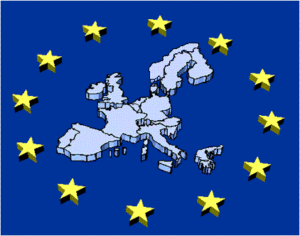
The much-anticipated ruling from the Court of Justice of the European Union (CJEU) was issued after speculation in the legal and gambling worlds. Not only did the court rule agree with case law in that national legislation, like that in Austria, must be compliant with European Union law, but the justices went so far as to say that the law will make it more difficult for other EU member states to justify their gambling legislation as well.
The Cases That Started It All
Robert Pfleger was the man behind the case that began in March 2012. The Austrian financial police raided a pub in which several customers were playing on Internet slot machines. The company running the games had no Austrian license for them, so the machines were seized. Pfleger was not the owner of the machines, did not organize the gambling, or supply the machines in any way. Even so, he was one of several people charged with operating the machines with no license.
Case C-390/12 was heard in Austria, where it was ruled that the Czech-based machines were illegal, because they didn’t comply with Austrian gambling law that requires a state-issued license to operate such machines. Pfleger then took the case from the Austrian Supreme Court to the CJEU for a review of Austria’s gambling laws that were in opposition to Article 56 of the Treaty on the Functioning of the European Union that restricts free movement of services between member states.
Another case also came to the attention of the CJEU which revolved around a gambler in Austria who lost €950,000 ($1,323,730) playing Internet roulette on two gaming sites that were not licensed in Austria. This, too, took issue with the Austrian gaming laws that were at odds with broader European Union tenets and agreements.
CJEU Rules Against Austria
The CJEU did rule that Austrian gambling laws restricts competition and make it more difficult for other EU member states to justify their own gambling legislation.
In addition, the CJEU ruling stated that Austrian gaming law was applied inconsistently and hypocritically. The country’s licensing requirements focused more on collecting taxes and reducing gambling than protecting players.
The European Gaming and Betting Association approved of the decision, confirming that Austrian law breaches EU law and makes it more difficult for consistent legislation for all member states.
This recent ruling is in line with the EU body’s Advocate General, Eleanor Sharpston, who issued an opinion regarding Austrian gaming law in November 2013. She claimed that operators with Austrian licenses were practicing an “expansionist commercial policy” that was “plainly inconsistent with an aim of achieving a high level of protection for customers.”
The decision of the CJEU may be difficult to enforce, however. There have been similar rulings pertaining to gambling laws in other EU member states that have decided to impose strict regulations on Internet gambling for their residents. But most of those European countries have yet to revisit or revise their laws to comply with the European Commission.
The difference in the Austrian rulings is that there are now two significant opinions against Austria, which may prompt the country to reconsider how the laws are applied. The CJEU could take further action, but has yet to do so in any country with relation to a gambling case.


